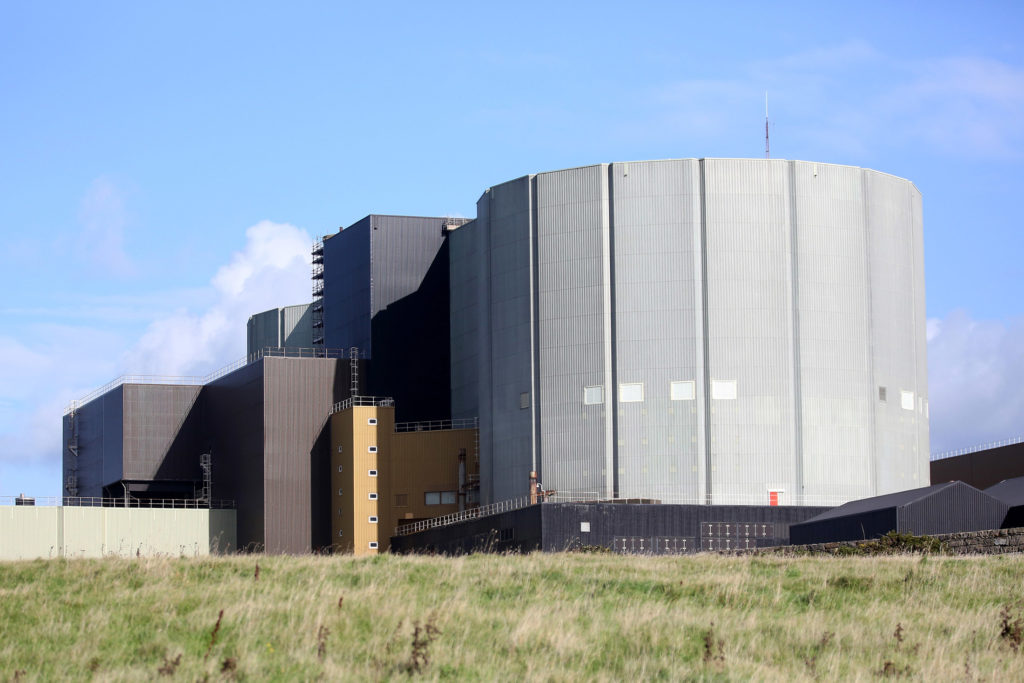
Japanese conglomerate Hitachi confirmed it will halt work on its nuclear power projects in the U.K. and said it will take a one-time charge amid a shift away from reactor sales.
The company will book a loss of about 300 billion yen ($2.8 billion) after suspending indefinitely plans to build reactors in the U.K. and writing down the value of its British nuclear business, according to a statement.
The decision is a blow to the future of nuclear power, both leaving in doubt the U.K.’s ambitions to replace its aging nuclear fleet and driving a nail in the coffin of Japan’s nuclear technology exports.
Hitachi’s move follows a decision by Toshiba Corp. in November to withdraw from the Moorside plant, leaving the Hinkley Point project in southwest England as the only U.K. facility under construction. Meanwhile, the use of nuclear power in Japan still faces public opposition almost eight years after the Fukushima disaster.
“The U.K. was the last hope for reactor exports” for Japanese companies, Stephen Thomas, emeritus professor of energy policy at the University of Greenwich, said by email. “As to Japan’s future in nuclear, I think it is the end as a reactor vendor, certainly outside Japan.”
Scrapping the U.K. plans is the latest move by the Tokyo-based manufacturer to shift away from the nuclear power industry, as it seeks to expand in higher growth sectors like power transmission and distribution. Hitachi’s shares jumped the most in more than two years on Friday after the Nikkei first reported it would halt work on the project.
Hitachi bought Horizon Nuclear Power, developer of the Wylfa project, from Germany’s two largest utilities for 697 million pounds ($897 million) in 2012 with the backing of the U.K. government. The company has now moved to shelve Wylfa after it failed to find Japanese investors or make progress with U.K. financing as Prime Minister Theresa May’s government has been swept up in Brexit turmoil, according to the Nikkei report.
Over the last decade, Japan’s manufacturers scooped up nuclear projects around the world in a bid to supply their own reactor technology and support fledgling sales. But the risk of rising costs and safety concerns, coupled with stiffer competition from renewables and gas-fired facilities has led to nearly all Japan-backed projects getting scrapped because of a lack of investors.
RenewableUK’s deputy chief executive Emma Pinchbeck said: “Government has to review how it’s using low carbon policies or we risk relying on more heavily on polluting gas and coal. As the cheapest source of new power, onshore wind can make a major contribution to the UK’s clean growth ambitions.
“We have a pipeline of shovel-ready onshore wind projects that can provide cheap power to consumers and help close the gap on our carbon targets and it’s time Government allowed onshore wind compete on a level-playing field, including letting projects compete for Contracts for Difference”.
Recommended for you
